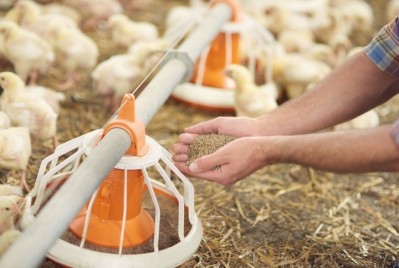Plan to lift restrictions on EU imports of vitamin D3 for feed use from China

The EU Commission, as reported by the UK’s AIC, is in the process of revising Decision 2002/994 to allow for the utilization of vitamin D3 and its precursors sourced from animals in China for feed within the EU. This revision is anticipated to take between three to six months before its official publication.
FEFAC awaits written confirmation from DG SANTE by the end of this month.
Background
In 2021, the Commission reclassified vitamin D3 as a product of animal origin (POAO) rather than its previous classification as an 'organic chemical' product. This reclassification, solely a legal clarification, denotes that irrespective of processing steps, if the initial material is sourced from an animal, such as lanolin in the case of vitamin D3, it is considered a POAO.
Stemming from this legal clarification was the need to adapt related regulation.
Hence, Regulation (EU) 2022/1322, effective from July 25, 2022, amended Regulation (EU) 2021/632 to include casein, cholesterol, creatine, cysteine, gelatin, heparin, vitamin D3, and its animal-origin precursors in the list of products subject to official controls at border control posts.
But, due to Decision (EU) 2002/994, no EU vitamin D3 imports from China for feed use could then be permitted since the product is categorized as a POAO. Nonetheless, a derogation within that decision permitted the import of vitamin D3 from China for use in food supplements.
Imports of vitamin D3 from other non-EU countries for feed must adhere to the requirements outlined in the animal by-product (ABP) legislation.
‘Wait-and-see mode’
FEFAC and the EU feed additives association, FEFANA, engaged with the Commission on the issue given China's dominant market share in relation to the supply of both vitamin D3 and the precursors required for the vitamin D3 produced in the EU such as lanolin and cholesterol.
Due to the fact that China is involved, it is a sensitive topic, politically.
Most EU national custom authorities have allegedly been in a ‘wait-and-see’ mode in terms of implementing the legislative changes. However, in mid-December, the Belgian custom authorities decided to reject a shipment of vitamin D3 from China that was destined for feed use, prompting FEFAC and FEFANA to write to the head of DG SANTE requesting that the process to lift the restrictions on such imports be speeded up.
On December 19, DG SANTE informed FEFAC and FEFANA that a political agreement to revise Decision 2002/994 was in play, thus potentially removing the restrictions on imports of vitamin D3 from China for feed supplementation.
“Given the importance and reliance of vitamin D and intermediates from Asia, it is not surprising that industry participants escalated that topic to the EU Commission immediately, to avoid losses from expired material and, more generally, shortages of important functional ingredients,” commented Stefan Schmidinger, chief economist at Kemiex.
Animal origin classification
This new legislative measure does not alter the classification of vitamin D3 as a product of animal origin, though, meaning that vitamin D3 for feed use is still regarded as an ABP derived product, and so its import from third countries for feed use must comply with the provisions laid down in Regulation 1069/2009 and 141/2011 as regards imports of ABP and ABP derived products.
Meanwhile, James McCulloch, head of feed sector, at the AIC, said the trade group had not yet heard from the UK’s Food Standards Agency (FSA) on what its current position is regarding both UK imports of vitamin D3 from China and the classification of that ingredient as a product of animal origin.
Emmanouil Geneiatakis, FAMI-QS secretary general, also weighed in on the topic. He noted that the European feed industry has been dealing with quite a complex regulatory environment over the past year with regards to not only the import of vitamin D3, but any vitamins obtained from animal origin along with gelatin-coated vitamins and pigments, stressing that the EU food and pharma industries have not been exposed to the same level of restrictions.
“FAMI-QS, in coordination with our feed chain stakeholders, issued a certification instruction to ensure that all our certified organizations, globally, are aware of the conditions required for placing vitamins obtained from animal origin and gelatin-coated vitamins and pigments on the EU market, and that they incorporate those requirements into their quality and feed safety systems as per the FAMI-QS code.”












